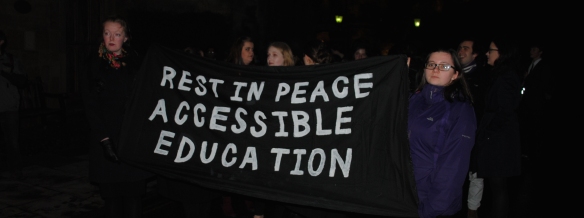
For an international student, studying at Durham is an attractive prospect; very few of the country’s many universities can offer such a typical version of the English university experience, as it is perceived around the world. From ancient buildings to gowned formals, Durham provides much of what the rest of the world idealises about the UK. Durham is a wonderful historic town, and its many remarkable features do not get tiresome quickly. Even after three years here, I am still often struck by the beauty of the place. Last year, I would pause almost every day on my walk to lectures to look at the imposing view of the cathedral, framed by the rising sun.
Despite these undeniably appealing features, life as an international at Durham can be challenging as well. The University has a complicated relationship to international students, to say the least. Durham is far from one of the UK’s most diverse universities, but international (Non-EU) students still represent about 35% of the universities income from tuition, equalling £53 million, despite making up just under 22% of the undergraduate population. The University thus has an obvious financial incentive to recruit more international students. This financial drive has, however, also led them to institute enormously high international fees.
Durham University provides effectively no financial support for internationals, which tends to leave them in one of three situations; either they are wealthy enough to easily afford the high tuition fees, they receive support from an external body to pursue their studies (as I do), or they are spending a large portion of their personal finances on attending the University. It is this last group of students to whom Durham University shows little or no regard.
Up until last year, fees for international students increased by approximately £700 a year. International students were not alerted to this fact before accepting a place at the University, and many were ending up struggling to pay the extra £2000 pounds yearly by the end of their degrees. Under sustained pressure from the Students’ Union and international students, the University agreed last year to fix international fees, so that students would pay the same amount every year throughout their degree. They were, however, determined not to actually sacrifice any income by taking this step, and chose to raise fees for new entrants next year by a whopping £2000. This makes their promise to fix fees entirely hollow. Instead of raising fees by a set amount every year, they do it in one enormous increase for every incoming class of students.
By continuing to raise fees at this rate, Durham University is rapidly driving out this third category of self-funded students. Soon those lucky enough to have external funding will begin to suffer too, as most funding has a cap which the University fees are already exceeding, in many cases. The message is clear – Durham University values diversity and international students, but it would really rather they were of the ultra-wealthy variety. This highly exclusive version of diversity ties in well with the ideas of the current Conservative government of the UK, which recently introduced a requirement that all non-EU nationals working in the country must earn over £35,000 a year, or they will be deported. That is almost £10,000 higher than the average salary in the UK, and represents a clear attempt at economic segregation. This hostility to foreign nationals and emphasis on economic achievement above all else is one of the main reasons I am choosing not to stay in the UK after graduating.
In my time at Durham, I have met some truly wonderful people from both the UK and abroad. Judging by my friends alone, I can say with confidence that diversity at Durham is not yet dead. But if the University continues to act in the way it has been, then we will see an increasing homogenisation of the student body. This is why one of our demands for the Alternative Open Day is a reversal of the unreasonably high increase in international fees for the coming academic year. Durham is a beautiful city and an excellent university, and it is important that it be made accessible to all, not just a privileged few. Only by promoting economic accessibility can the University’s stated aim of increasing diversity be genuinely realised.
Lewis Picard is an international student at Durham University. If you have any questions for him, please feel free to get in touch at lewis.picard@durham.ac.uk.


